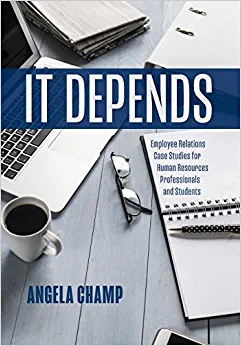Why is Employee Counselling Required
There are many benefits to employee counseling. Some of the most common benefits are:
- Increased productivity and performance
- Improved company culture
- Increased job satisfaction
What is Employee Counselling, Meaning of Employee Counselling,
Employee Counselling has been defined as a process which takes place in one-to-one relationship between an individual beset by problems with he cannot cope alone and a professional worker whose training and experience have qualified him to help other reach solutions to various types of personal difficulties.
Counselling refers to the provision of professional assistance and guidance (by the organization) in resolving personal or psychological problems of employees.
Business organization also gives career related guidance to an employee which is known as career counselling.
Needs of Employee Counselling
Need for employee counseling arises due to various causes in addition to stress. These causes include: emotions, inter-personal problems and conflict at place, inability to meet job demands, over-work load, and confrontation with authority, responsibility and accountability, conflicts with the superiors, subordinates and management and various family problems, health problems, career problems etc.
Counselling is a basic part of industrial psychology as long as people work with other people in organizational settings. Several organizations are training their supervisory and managerial personnel in interviewing and counselling techniques in order that they may be more helpful in fostering good mental health among employees.
Stages of Employee Counselling, Various Stages of Employee Counselling
The basic stages of counseling are:
- Developing the client/clinician relationship;
- Clarifying and assessing the presenting problem or situation;
- Identifying and setting counseling or treatment goals;
- Designing and implementing interventions; and
- Planning, termination, and follow-up.
Types of Employee Counselling
Effectiveness of counselling largely depends on the methods and techniques as well as the skills used by the counsellor. Methods and techniques of counselling change from person to person and from situation to situation.
Normally employee counselling involves the following types:
- Directive Counselling,
- Nondirective Counselling,
- Cooperative Counselling,
- Participative Counselling,
- Desensitization,
- Catharsis,
- Insight, and
- Developing the new patterns.
To Read more such informative Blogs Click Here
hradvosrs4u Blogs
Describe the Process of Employee Counselling
Efficient counselling depends upon the attitudes, perceptions and skills of the counsellor. If we wish to act as counsellors, but do not have positive attitudes, respect or feelings of the counselee, ability to communicate, empathize with the counselee and desire to be of service, we will not be able to do a good job.
The manager/counsellor should take care to fix a mutually convenient time and place free from interruptions for the counselling session. During actual counselling, he should help the employee to identify his own problems and arrive at his own course of action.
The counsellor could do the following:
- Be prepared with as much knowledge as possible about the individual
- Put the counselee at ease
- Avoid criticism and give hasty decision
- Do not show your authority
- Give undivided attention to counselee when he is speaking
- Encourage him to give constructive suggestions and alternatives to solve the problems.
The counsellor takes up the following steps in doing this:
- Rapport Building is the First Step in Counselling: The counsellor listens to the counselee and shows his concern about the problems of counselee.
- Asking the Counselee Exploring Questions: The counsellor should help employee open up with him and come out with his weak points and problems.
- Find Alternative Ways to Help the Counselee: Counsellor should be able to help the counselee by finding out ways and means of helping him.
- Interpretation: Often people avoid focusing on the real problem and talk around the issue.
- Repeating: At times of stress and crisis, clients are in a state of denial or feeling overwhelmed.
- Summarizing: Many people who are stunned by news of the disease may respond by talking quickly and trying to provide more details or ask more questions; than counsellor can absorb or comprehend.
- Confrontation: Many a time’s clients are so much preoccupied with their fears that cannot see the connection between their behaviour and the responses of the others.
- Respecting: As a counsellor, try to appreciate that people see their problems in unique personal ways determined by culture, social class and personality.
- Structuring or Prioritization: Structuring means helping the client to see relationship between facts and feelings.
- Deciding Plan of Action: Based on the scientific knowledge, cultural and socio-economic aspect of the client, help the client to explore all the possible solution for the prioritised aspect and choose the most relevant option for action.
- Concluding a Counseling Session: While ending the session summaries the salient points and decision taken, congratulate client for their efforts, wish them luck and fix next visit.
Employee Counselling is an Advising Technique to
- It is a means of learning about your employee’s problems and helping solve them. Such problems are generally caused by one’s work, emotional stance, mental health, etc.
- Employee Counseling is the answer to combat stress, mental health, etc.
- Employee Counseling is the answer to combat stress, workplace depression, anxiety, and declining productivity in an office. The main objective here is to support your employees through suitable guidance.
Employee Counselling pdf
To Know More About Employee Counselling

Anyone who thinks that Human Resources is boring or transactional clearly is not paying attention. The classic answer to just about every Human Resources issue is “it depends,” and this collection of case studies demonstrates how different circumstances, different contexts, or different cultures and laws can affect the outcome of any scenario.



Add a Comment